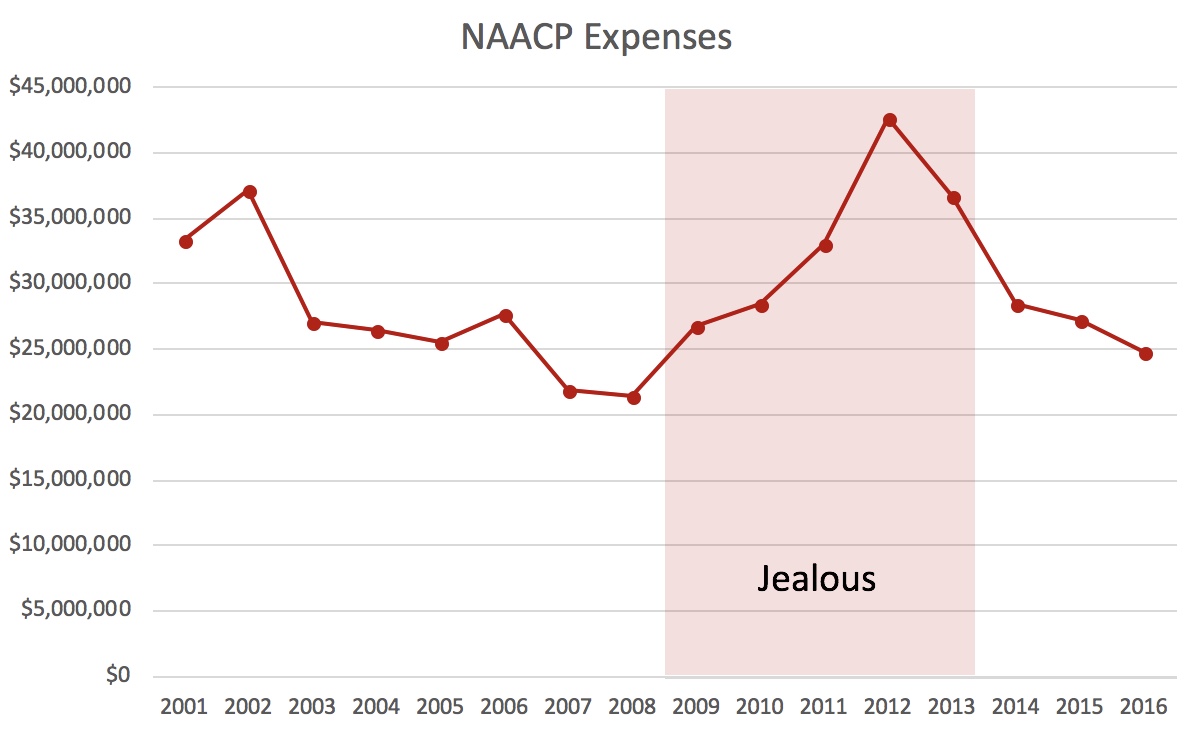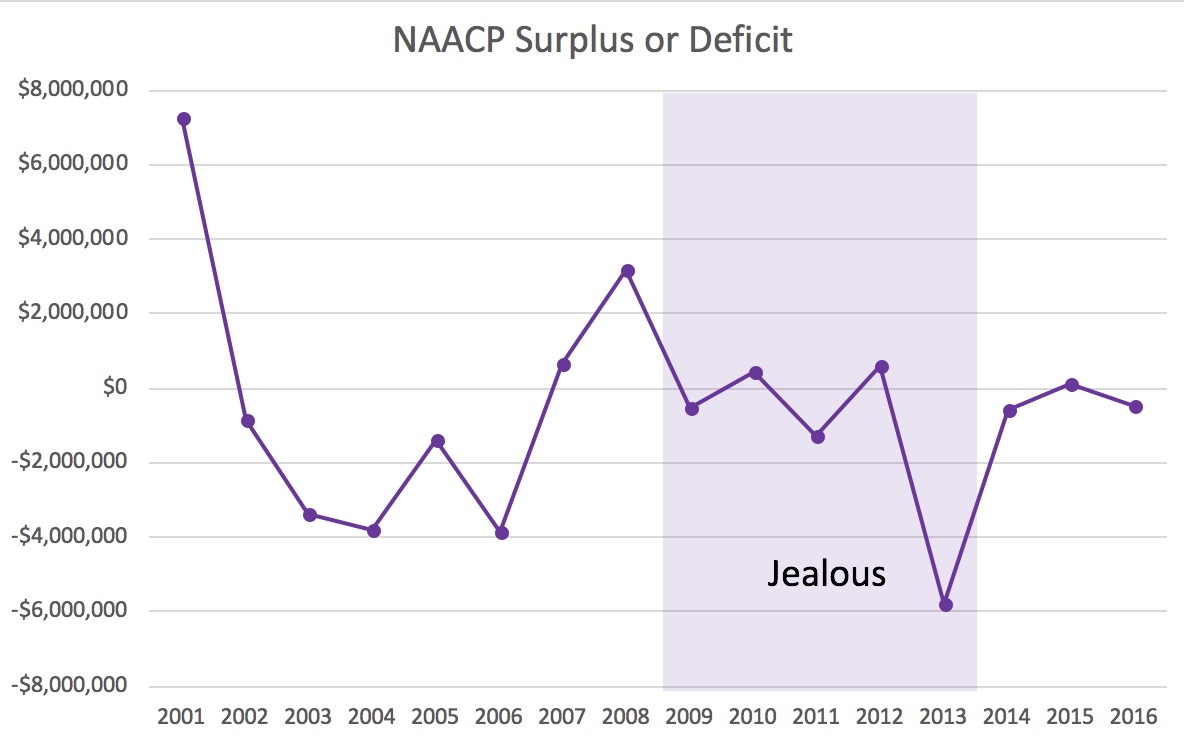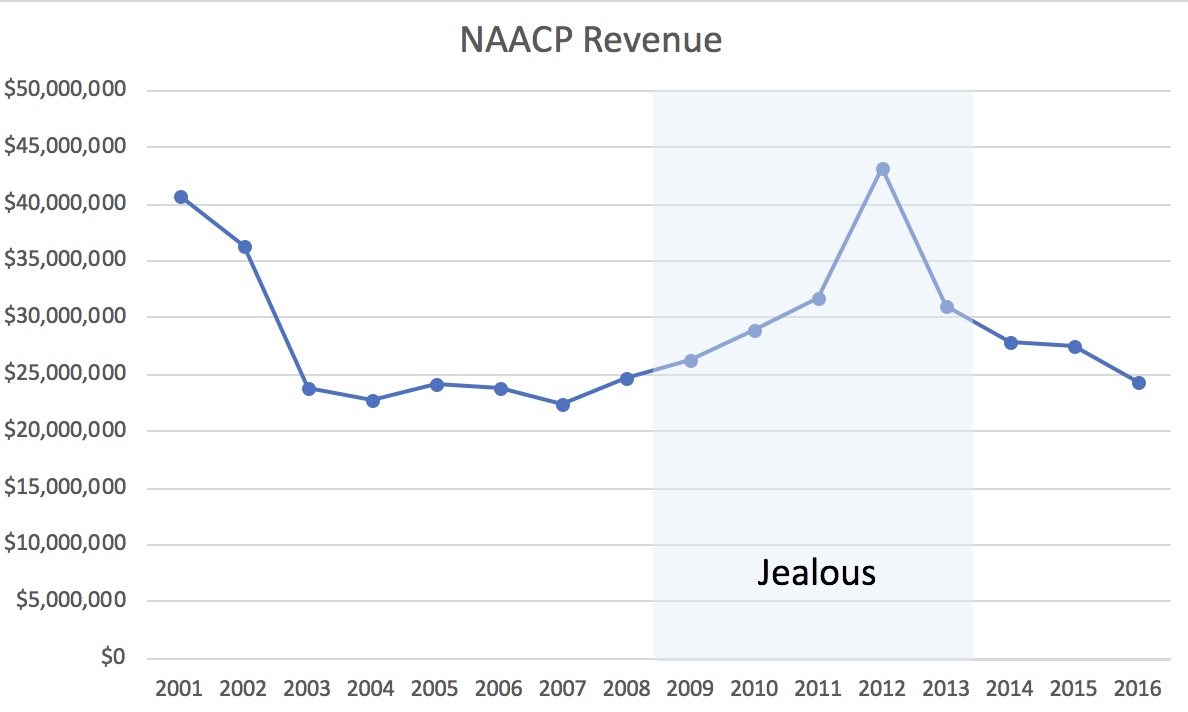Ben Jealous likes to tout his leadership at the NAACP. Managing the State’s budget is a central responsibility of the governor. How did he handle the NAACP’s finances?
Examination of the organization’s tax returns reveals that Jealous’s leadership at the NAACP had a major impact on the organization’s finances. He increased the revenue – and expenditures – of the NAACP dramatically.
NAACP revenue rose from $24.7 million in 2008 to $43.2 million in 2012, an impressive 75% increase. However, it dropped back to $31.0 million in the last year of Jealous’s tenure before his abrupt departure after the first year of a new multiyear contract. (Jealous refused to explain the reasons for his leaving in an interview with The New Republic.) Revenue has since continued to decline, falling to $24.4 million in 2016.

Expenditures tracked revenue closely, and rose from $21.5 million in 2008 to $42.6 million in 2012 before falling back to $36.8 million in 2013. Since Jealous left the NAACP, spending has continued to fall, reaching $24.8 million in 2013.
My sense that Jealous did an amazing job at the start of expanding the organization’s revenue, and thus activities, but that it did not prove sustainable. Both revenue and expenditures dropped substantially in the last year of his leadership. Jealous did not leave the organization able to maintain even this level of revenue or expenditures, as both continued to fall.
The net impact of Jealous’s financial stewardship is overall less impressive than his ability to increase the organization’s profile. In the first four years of his leadership, the NAACP’s largest surplus was $0.6 million and its largest deficit was $1.3 million. However, the deficit jumped to $5.8 million in his final year – the largest in the 16 year period examined here.

The impact on net assets is more disturbing. After increasing the organization’s assets from $12.7 million to $17.3 million, Jealous then oversaw their fall to just $8.0 million in the final year of his leadership – a drop of 37% from his arrival and 54% from the best position under his leadership.

Assets continued to fall after Jealous left, reaching a low of $3.0 million in 2015 before rising to $3.8 million in 2018. Again, this doesn’t present a picture of an organization left on very stable footing when Jealous left.
Ironically, this progressive tribune presents a great example of how the well off have continued to do well even as the incomes of ordinary people have stagnated. Jealous’s compensation rose from $285,000 in the first full year of his tenure to $375,114 in his final year, an increase of 32%.


